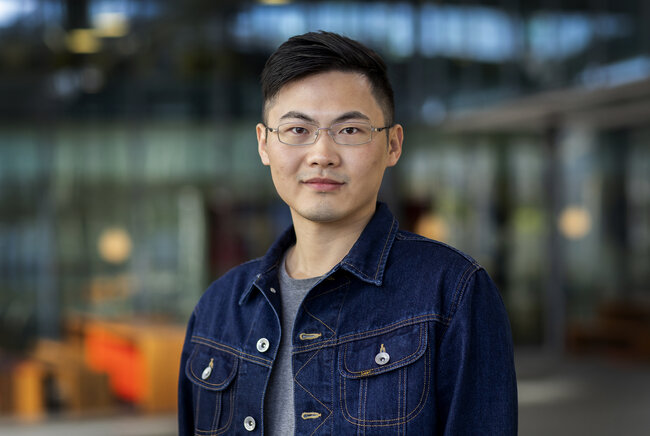Promising DSP algorithms for the next-generation transceivers
A boost for the capacity of optical fiber communication networks.

Optical fiber communication systems, the backbone of our internet and data transfer, face unique challenges due to memory effects that affect signal quality. These effects vary based on the system's application, from short-reach data center connections vulnerable to inter-symbol interference (ISI) to long-reach, high-capacity links like submarine fibers where nonlinear interference (NLI) is a major concern. Addressing these issues is crucial for optimal system performance. Digital signal processing (DSP) offers solutions, but finding the right balance between complexity and effectiveness is a challenge. With his PhD research Kaiquan Wu brings new insights and solutions for both short-reach and long-reach systems. These contributions aim to enhance the efficiency and applicability of DSP techniques in real-world optical fiber communication systems, pushing the boundaries of data transfer technology. Wu defended his thesis at the department of Electrical Engineering on December 7th.
Memory effects in optical fiber communication systems manifest themselves as signal-dependent impairments. The dominant signal-dependent impairments vary depending on the application being considered. Short-reach cost-driven applications such as intra-data center interconnects are vulnerable to inter-symbol interference (ISI). On the other hand, in long-reach, high-capacity applications such as submarine fiber links, the presence of fiber nonlinearities becomes prominent and causes nonlinear interference (NLI), which can be treated as a special case of ISI. Effectively addressing these impairments via digital signal processing (DSP) is of great importance to push the system performance to its limit.
Insights into characterization
However, achieving a good trade-off between complexity and performance remains a challenge for state-of-the-art DSP techniques. While some of the DSP techniques offer superior performance, they may be too complex for practical implementations. Conversely, simpler DSP algorithms ease implementation but at a considerable cost of performance. The research of Kaiquan Wu provides insights into the characterization of linear ISI and NLI in two distinct application scenarios. To address the challenges posed by the interference, his thesis makes contributions towards enhancing the performance and applicability of DSP techniques in practical optical fiber communication systems. For short-haul low-cost intensity-modulation and direct-detection (IM/DD) systems suffering from linear ISI, the main contribution is a low-complexity architecture for trellis-based equalization algorithms. For NLI in long-haul large-capacity coherent systems, the main contributions include (i) a new accurate NLI metric called energy dispersion index (EDI) and (ii) a practical sequence selection architecture for NLI mitigation.
The research is conducted under ICONIC projects, which stands for ‘Increasing the Capacity of Optical Nonlinear Channels’.
Title of PhD thesis: Digital Signal Processing for Signal-Dependent Impairments in Optical Fiber Communication. Supervisors: dr. Alex Alvarado, and dr. Gabriele Liga.